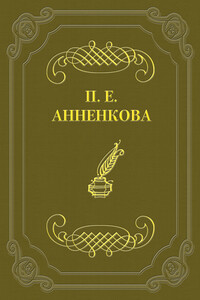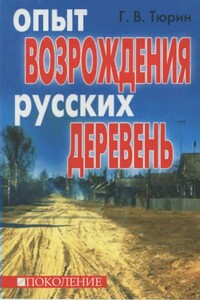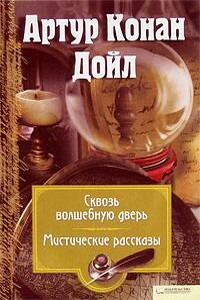The Boy Scouts In Russia - [25]
"I should like to stay, too," said Fred.
"Impossible!" said General Suvaroff at once to that. "You would be shot as soon as you were caught-you are under sentence now. They would not treat you as a prisoner of war, even if they caught you among my troopers."
"But if they did not catch me-"
"No! I cannot let you take so great a risk. You are of my kin, and I owe a duty to your mother. I shall see that you get back safely to Russia and are sent home by sea from there."
"But if I go into Russia, I shall be arrested-those are Prince Mikail's orders," said Fred, quietly. "I am sure to be caught there, and here there is a chance that I may not be found. If you take Lieutenant Ernst with you as a prisoner, no one among the Germans will know me, except as I appear now. If I change back to my own clothes, I shall be safe from anything worse than detention. None of the officers of the court-martial escaped, did they?"
"No, that is true," said Suvaroff. He spoke thoughtfully. It was plain that Fred's argument was making an impression on him. "I have heard something of your affair with Mikail. I shall look into that. Eh-I don't know just what to do!"
"Let us stay!" pleaded Boris. "We will be careful, and we know now just what dangers we must avoid."
"I think we shall be back here, in force, before the week is out," said his father, after a moment's reflection. "Very well, you shall stay! It is true that you may be of the greatest service. I have not the right to consider personal matters when the welfare of Russia is at stake."
It was light by now. In curious contrast to the shambles of the garden and the disorder of the house, its windows shattered by bullets, its furniture broken and draperies torn in the swift conflict that had followed the appearance of the Cossacks, roosters were crowing outside and birds were singing. General Suvaroff gave a sharp order; subordinates passed it along. A bugle sounded, and, five minutes later, after the general had said good-bye to the two scouts, the Cossack raiders rode away. They were strung out in a long column along the road. As they passed through the village Fred and Boris, watching from an upper window of the abandoned parsonage, saw the villagers watching. Boris had a powerful field glass, and through this he and Fred could see the very faces of the watching Germans. Hatred and fear mingled in the looks they sent after the invaders of their country.
"One can't blame them," said Fred, with a shudder. "War's rather ghastly, isn't it, Boris?"
He looked down into the garden, and Boris's eyes followed his.
"Yes," said the Russian. "That's the ugly part of it. It's all ugly. But sometimes war must come, it seems to me. We in Russia have never wanted to make war. We have fought because we were forced to fight. I think that is what history will say of us in this war."
"They are not going toward Russia," said Fred, looking after the raiders, who were melting into the landscape now. "Their road seems to be due west."
"They must ride in a long circle, I suppose," said Boris. "If they went straight back, they would run right into the Germans. There must be a lot of the enemy between us and the Russian lines-their main body, you see. And my father won't want to fight. His object is to get back with as many men as possible. It would be useless to send a thousand Cossacks against an army corps."
"Oh, of course! It's wonderful to think of how they got here, Boris, riding right through the enemy's country! It's like the work cavalry did on both sides in our Civil War. They used to get behind the enemy's lines and cut telegraph wires and railways all the time."
In the village, there were now more signs of life. As the Cossacks rode by, the street had been empty, but now men and women were coming out furtively. They began to come toward the parsonage.
"Time for us to go," said Fred, with decision. "We wouldn't have much chance if they caught us here. And if we're to be of any use, those people have got to think that we've gone."
"Right!" said Boris. "Hello-look up there! I was afraid of that!"
He pointed to a monoplane, flying high and coming from the north, from the direction of the Baltic.
"Looking for the raiders," said Fred. "Let's hurry. I think we ought to report what has happened by wireless. Your father's party may need help." CHAPTER XII
It was nervous work going through the lower floor of the house, through the garden, trampled by the rush of the Cossack charge, through bushes clipped and torn by bullets. All about was a curious silence, broken only by the sounds that the birds made, and the humming insects, which were not at all disturbed by war and the ruin it left in its wake. It was a relief to both scouts to pass into the tunnel. There everything seemed normal, strange though the place was. And in a few moments they were back in the great hall of the Suvaroff house, and were being greeted with delight by old Vladimir, though he reproached them, too, for coming back.
Their first thought was for the wireless. Fred sent a brief report of what had happened, describing the escape of General von Hindenburg. And then, as he was about to end the message, Ivan stood beside him. His eyes were shining and he seemed greatly excited.

«Ваше величество, позвольте матери припасть к стопам вашего величества и просить, как милости, разрешения разделить ссылку ее гражданского супруга. Религия, ваша воля, государь, и закон научат нас, как исправить нашу ошибку. Я всецело жертвую собой человеку, без которого я не могу долее жить. Это самое пламенное мое желание. Я была бы его законной супругой в глазах церкви и перед законом, если бы я захотела преступить правила совестливости. Я не знала о его виновности; мы соединились неразрывными узами. Для меня было достаточно его любви…».

В книге рассказывается история главного героя, который сталкивается с различными проблемами и препятствиями на протяжении всего своего путешествия. По пути он встречает множество второстепенных персонажей, которые играют важные роли в истории. Благодаря опыту главного героя книга исследует такие темы, как любовь, потеря, надежда и стойкость. По мере того, как главный герой преодолевает свои трудности, он усваивает ценные уроки жизни и растет как личность.

Текст воспроизведен по изданию: Письма Бичурина из Валаамской монастырской тюрьмы // Народы Азии и Африки, № 1. 1962.

Плачевная ситуация в российских деревнях известна всем. После развала масштабной системы государственного планирования исчезли десятки и сотни тысяч хозяйств, произошел массовый отток населения из сельских районов, были разворованы последние ценности. Исправление ситуации невозможно без эффективного самоуправления в провинции.Организованный в 1997 году Институт общественных и гуманитарных инициатив (ИОГИ) поставил перед собой цель возрождения сельских районов Архангельской области и добился уникальных результатов.

В настоящей книге Конан Дойл - автор несколько необычных для читателя сюжетов. В первой части он глубоко анализирует произведения наиболее талантливых, с его точки зрения, писателей, как бы открывая "волшебную дверь" и увлекая в их творческую лабораторию. Во второй части книги читатель попадает в мистический мир, представленный, тем не менее, так живо и реально, что создается ощущение, будто описанные удивительные события происходят наяву.